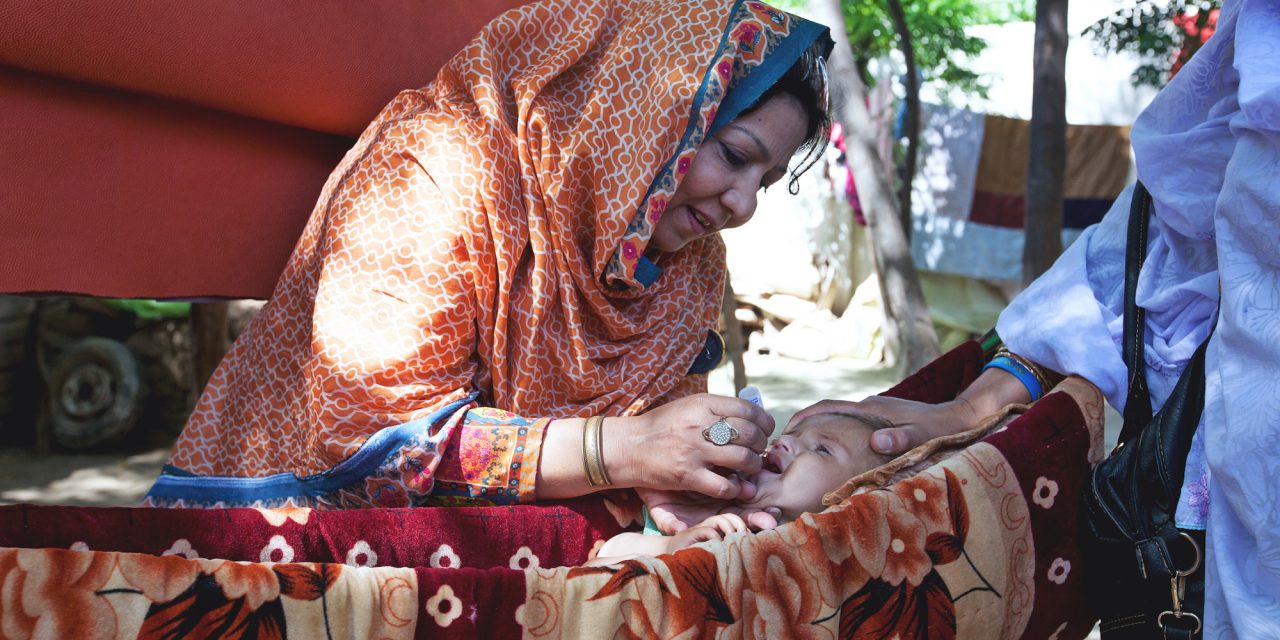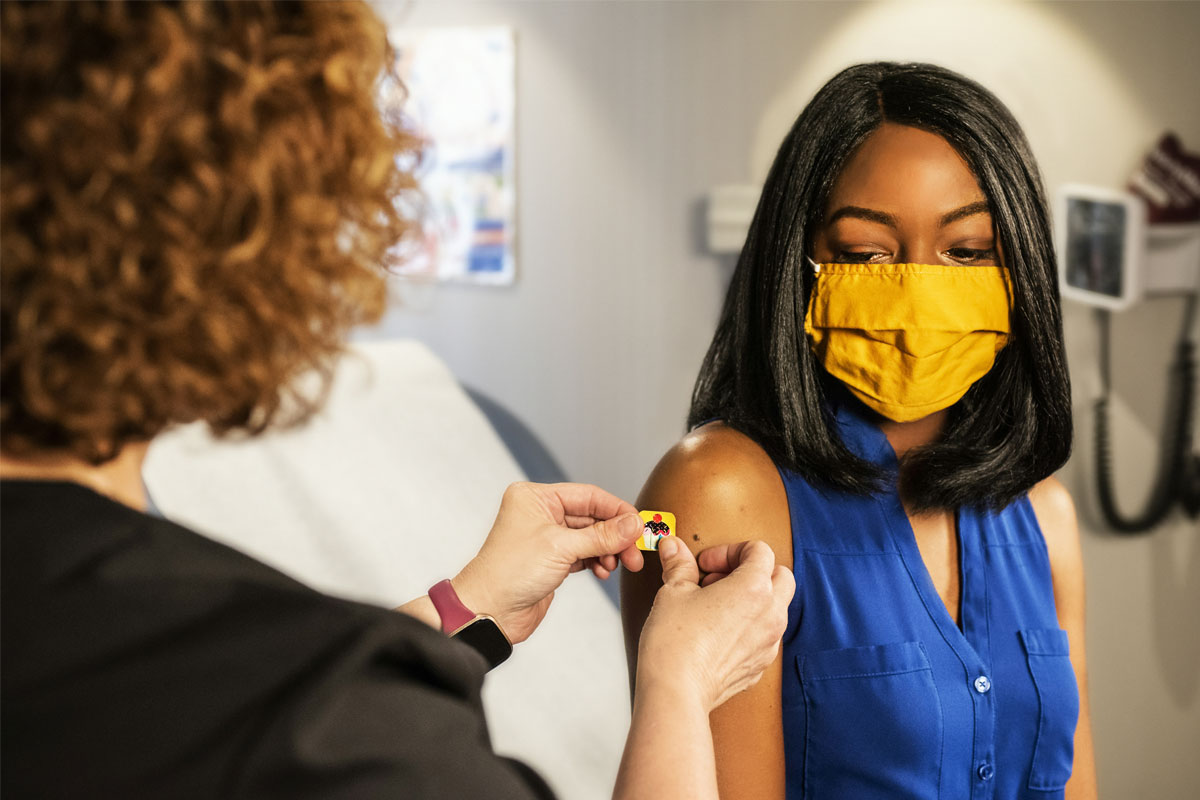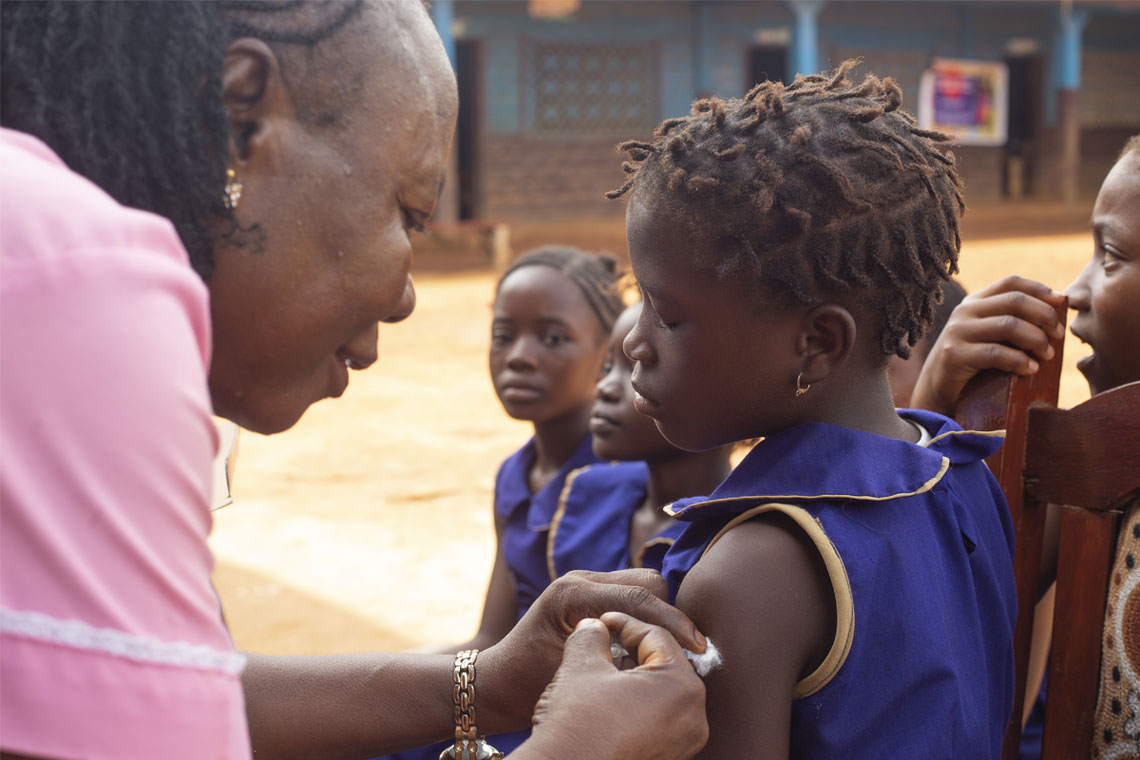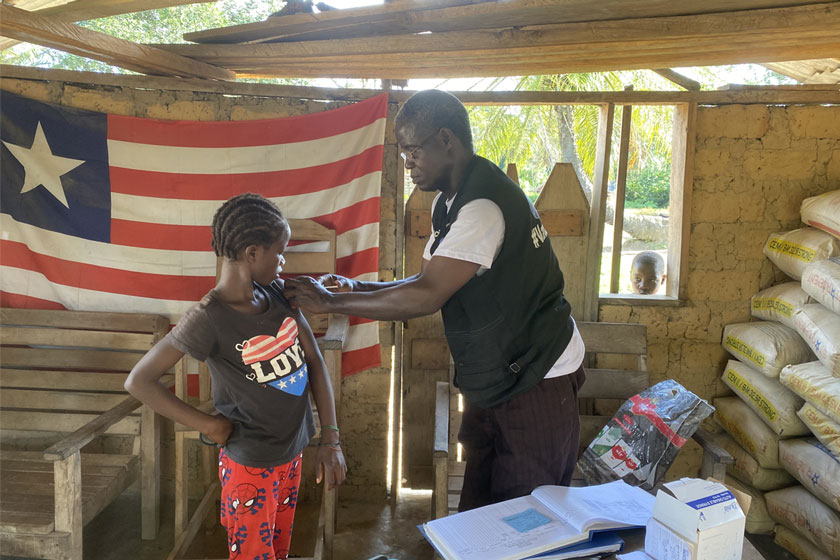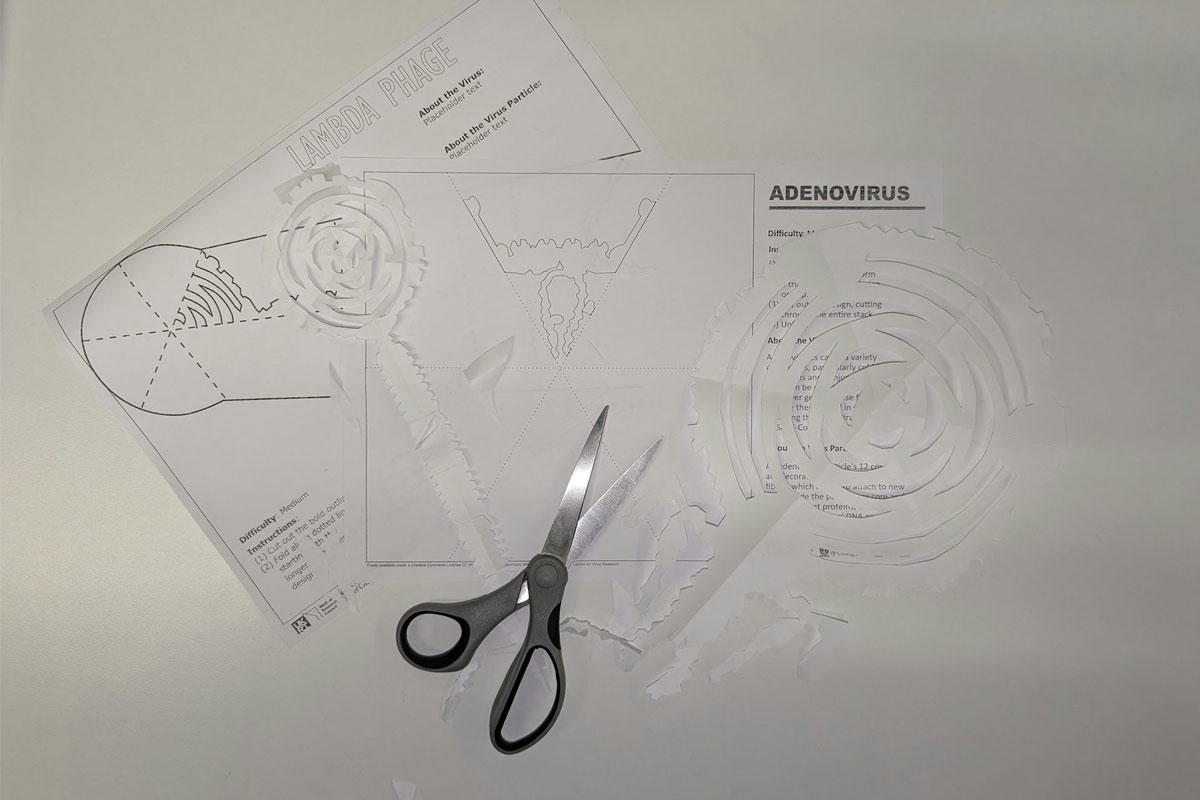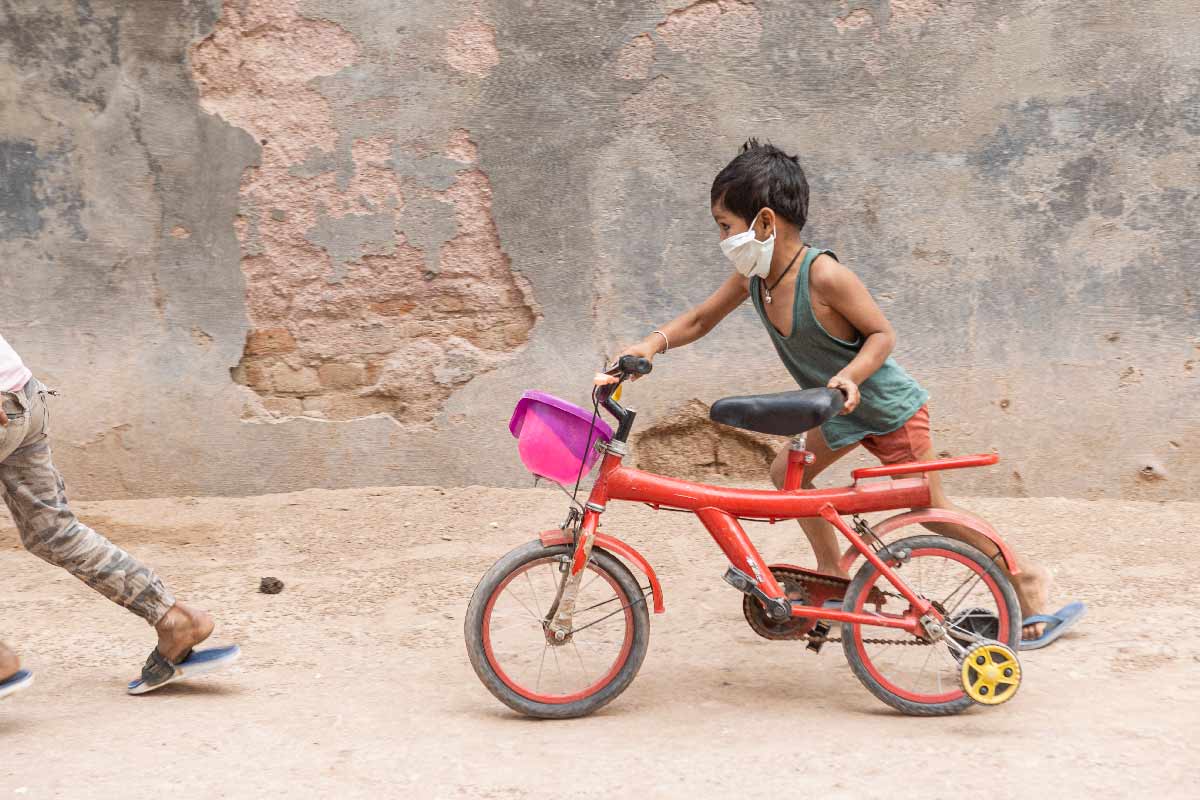Aleena Khan, Asia Programme Manager, Global One
Tayyuba Gul routinely visits an average of ten households a day in Nowshera, Khyber Pakhtunkhwa in Pakistan. As she travels door-to-door, she is escorted by government personnel due to the upsurge in violence against polio workers. She is not only trained to provide the polio vaccine, but also gives advice on other vital issues such as family planning, pregnancy care and child health. As someone who comes from the community, Tayyuba feels a sense of purpose and dedication to her work and the people she serves. She sets an example for young women who need educated, strong, and brave role models within their communities, and it is imperative that unheard stories such as hers are brought to a wider audience.
Tayyubba is just one of the courageous women featured in a photo exhibition by female photojournalist Khaula Jamil, which shares stories of women who risk their lives in the battle to make Pakistan polio free.
Khaula captured these powerful images on assignment for Rotary International in which she followed the journey of Lady Health Workers and female vaccinators across Pakistan. The images depicted not only the vaccines being administered, but also the unique dynamics of Pakistan as a country that has mass movements of people within (and across) its borders.
The exhibition has recently been touring the United Kingdom in partnership with our NGO Global One, in a bid to engage the global diaspora in the ongoing challenges of ending polio in Pakistan and to celebrate the women who make it happen. At the exhibition in London, Khaula and other eminent change makers had the opportunity to discuss the critical role of women to polio eradication in Pakistan, from the lady health workers who meet families face-to-face to the vaccinators and co-ordinators who organise and execute campaigns. To aid their conversations, they also screened Rotary’s video ‘Walk with Pride’, which outlines the difficulties of immunising children in transit.
For Miriam Doan, a visual storyteller at Rotary International, it was important to highlight the women who help to raise the political will for polio eradication. She lauded Pakistan’s Senator Ayesha Raza Farooq and Dr Rana Safdar as catalysts who turned the immunisation situation around in the country.
Ahmereen Reza, Country Director of Aman Foundation UK, went further, arguing for the unique role that the diaspora can play when they actively involve themselves in resolving health issues in Pakistan. This can take the form of the diaspora using their talents and skills to shift the narrative within mainstream media about the role of women in development, as well as the polio eradication initiative in Pakistan. The diaspora can also fundraise for, and donate to immunisation linked projects in Pakistan.
Ahmereen also shone a spotlight on the importance of leveraging the existing infrastructure for polio vaccination, to tackle other overarching health concerns in communities.
With a room full of young advocates listening intently, Khaula herself shared how the most fascinating moment of the assignment was when she followed vaccinators trying to reach children on the move – they had seconds to get on a bus, administer polio drops and jump off the bus before it left for the next station!
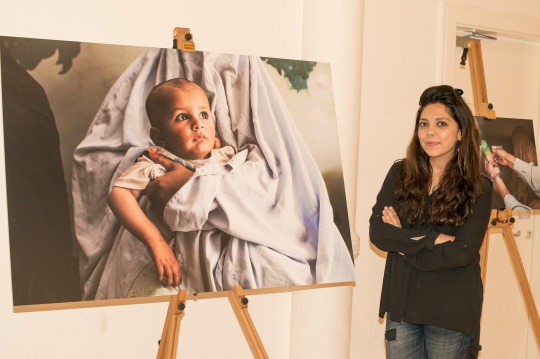
Khaula with one of her photos. Credit: Global One / Shy B Photography.
But it’s not just challenges like these that matter, as Allan Jagger OBE of Rotary Elland explained. It is just as essential for families to understand why their child should be immunised, building the community’s confidence in the potential of their collective efforts to fight polio. Whether in areas at high risk of polio or engaging the diaspora further afield, media is an important tool in keeping families, networks and communities up to date on the need for polio immunisation. Khaula’s powerful photos are one great example of how to start a global conversation about these realities for the women eradicating polio on the ground.
Global One, the UK’s first Muslim women led international NGO organised a UK tour with photographs by Khaula as part of its initiative focused on engaging the UK diaspora in polio eradication efforts. Find out more about their work here: www.globalone.org.uk
